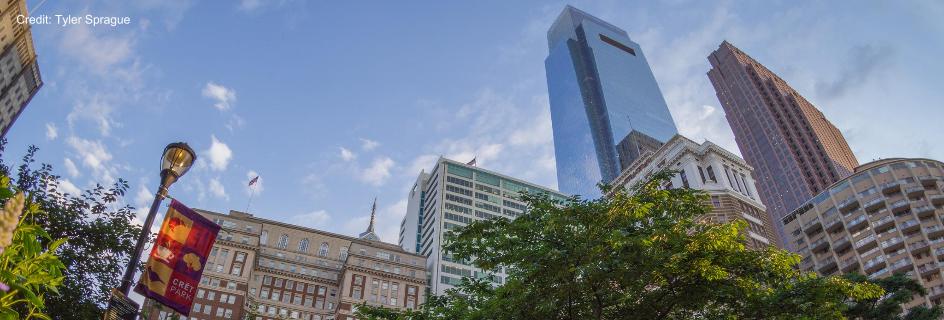- About GPA
- Global Events
- GLOBAL NEWS FROM PHL
- Global Directory
- World Heritage City
- Sustainable Development Goals (SDGs)
- Global Philadelphia Role on Sustainable Development Goals
- Completed Sustainable Development Goals
- SDG#1: No Poverty
- SDG #2: Zero Hunger
- SDG#3: Good Health & Well-Being
- SDG#4: Quality Education
- SDG#5: Gender Equality
- SDG#6: Clean Water & Sanitation
- SDG#7: Affordable and Clean Energy
- SDG #8: Decent Work and Economic Growth
- SDG #9: Industry, Innovation, and Infrastructure
- SDG#10: Reduced Inequalities
- SDG#11: Sustainable Cities and Communities
- SDG#16: Peace, Justice and Strong Institutions
- SDG#17: Partnerships for the Goals
- Press
Home ›
WHYY Hosts International Town Hall: Jordan on the Front Line
Posted on January 5, 2015
Related
Organization
Maria Johansson, for GPA -- For a long time, large masses of refugees have been fleeing to Jordan. Since 2010, people have been spilling over the border from Syria in the hundreds of thousands, creating one of the largest refugee crises in Jordan ever.
Andrew Harper, the representative in Jordan for the United Nations High Commissioner for Refugees, has called the influx of refugees the largest since World War II.
Harper was one of four panelists to take part in an international town hall meeting to discuss the conflict in Syria, hosted by WHYY. Harper appeared on screen streaming live from Jordan along with political author Mohammad Abu Rumman and host Yusuf Mansur, while the in-person panelists consisted of Jacki Lyden from NPR, Faysal Itani who is a Resident Fellow at the Atlantic Council and Sean Yom, a political science professor from Temple University.
The geographical location of Jordan is such that it borders Saudi Arabia, Iraq, Syria, Israel and Palestine. The country’s official name is the Hashemite Kingdom of Jordan and it is ruled according to a Constitutional Monarchy. The total population of Jordan is a mere 6.5 million.
The country does not have a great abundance of natural resources. For instance, Jordan ranks in the global bottom four in terms of access to water. Moreover, the country’s location in the middle of a desert region requires more labor intensive methods of obtaining food.
In spite of these modest means, Jordan takes in hundreds of thousands of refugees. Their biggest refugee camp right now, Zaatari, has in fact grown to become the fourth biggest city in the country.
This mass influx of people has strained the infrastructure and economy of Jordan. In order to resolve this situation, the best possible option would be for the refugees to be able to go back to their homes, which is something that most refugees want. However, as Yom explained, that is not a reasonable solution for now. The refugees from Syria, he said, generally have limited amounts of money and education. Moreover, they are fleeing from the complete collapse of a state. This indicates a long term occupation in Jordan for the refugees.
Some of the concerns regarding the refugee camps have been a lack of education, food and appropriate shelter. The Jordan government can only do so much and so Harper and the rest of the panelists encouraged the West to take action and get involved.
“We need one billion dollars for the refugee crisis,” Harper said, adding that they would need additional funds to construct much needed infrastructure in the country.
In addition to the concerns regarding the situation of the refugees, many people around the world worry about radicalization in the Middle East. The panelists seemed to agree that Jordan was not as at risk as some of their neighbors. Yom explained that the citizens of Jordan do not have the same “sectarian conviction” as many of their neighbors.
In fact, over the last few years only 2,000 Jordanians have been radicalized, said Rumman. This can be compared to 3,000 people from Tunisia, 1,500 from Saudi Arabia and approximately 1,000 people from the United Kingdom and France. Itani explained that Jordan also lacks the tension between Shiite and Sunni Muslims, a conflict that can trigger an extreme response.
When speaking about the future for Jordan and what the world can do to aid them and the people who go there for help, the panelists agreed: the West must get involved. Rumman explained that the current generation of Syrians will be “scarred” and many of the panelists emphasized the importance of keeping Jordan stable and well.
Yom suggested that the top priority for the U.S. government should be to make sure that the situation in Syria is “controllable” and that is does not flow over to Jordan. Itari emphasized the need for financial aid to Jordan to help them manage this refugee crisis.
To summarize the discussion of refugees, Harper offered the following: “If we don’t provide them with a future and hope, what will happen to them? And if we don’t have a future, what do we have?”







